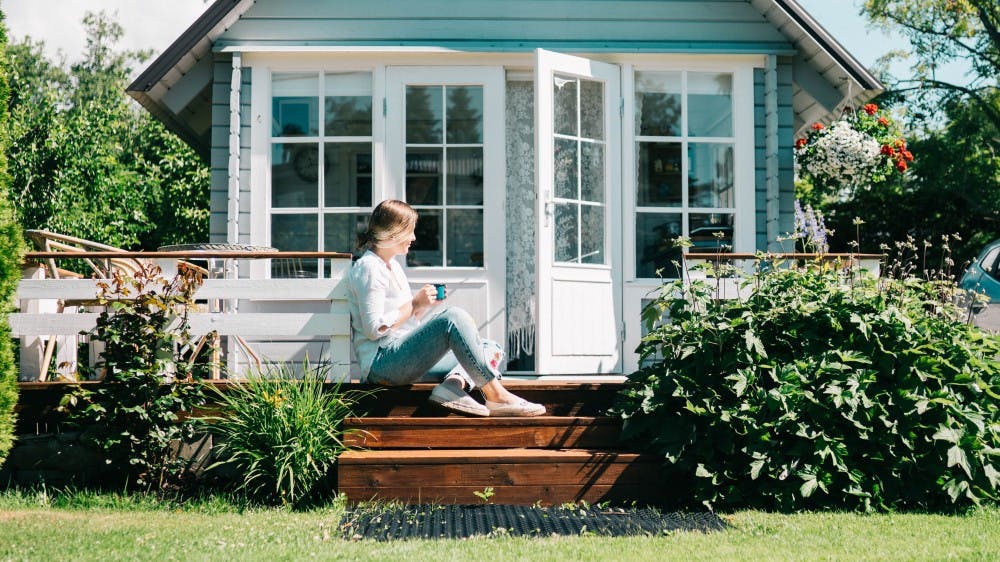First Time Home Buyer Incentives in Ontario: A Comprehensive Guide
8 minute read

Ontario’s real estate market is as diverse as its landscapes, with bustling urban centres and beautiful rural areas, offering a wide range of housing options. For first-time home buyers, the province’s dynamic market presents both opportunities and challenges. Property prices in urban areas like Toronto can be steep, making the dream of home ownership seem daunting (some may even say impossible). However, the Canadian and Ontario governments are proactive in supporting first-time buyers through various incentives and programs, making it more attainable to purchase your first home.
In this guide, we’ll delve into the specifics of what it means to be a first-time home buyer in Ontario, exploring the financial incentives and support available to ease the journey into home ownership. Understanding these incentives can significantly reduce the financial burden and complexity of buying a home in this competitive market. From land transfer tax rebates to affordable housing programs, Ontario offers a range of benefits designed to help first-time buyers navigate the often complex path to owning a home.
With careful planning, the right information, and a clear understanding of the available resources, first-time home buyers in Ontario can turn the challenge of purchasing a property into a rewarding investment in their future.
What Defines a First-Time Home Buyer?
In Ontario, the definition of a first-time home buyer is broader than you might initially think. It's not limited to individuals who have never owned a home before. Instead, you qualify as a first-time home buyer if you have not owned a home, or had any ownership interest in a home, anywhere in the world, at any time during the last four years. This period is considered to ensure that individuals re-entering the housing market after a significant gap receive support and can take advantage of the incentives available.
This gets even more complicated if you’re purchasing with a spouse. Neither of you must have owned a home during the last four years to qualify for first-time home buyer incentives. This policy is designed to encourage and facilitate home ownership among a broader group of people, including those who may have previously owned a home but are now starting anew, for life changes such as divorce or relocation.
There are a number of special considerations that can be applied to defining a first-time home buyer, such as individuals who are recently separated or divorced. Even if one has previously owned a home with their spouse, they may still be considered a first-time buyer post-separation if they meet the specific criteria set out by the incentive programs.
Understanding who qualifies as a first-time home buyer is crucial because it determines eligibility for various financial aids and programs, like the Land Transfer Tax Rebate, which can provide significant savings and support in the home buying process. To help understand if you and any co-purchasers are eligible for first-time home buyer incentives, it's important to consult a real estate lawyer. You’ll need to work with one anyways to facilitate your closing, so it’s worthwhile engaging them in your planning process to make sure you’re planning your finances properly.
Key Incentives for First-Time Home Buyers in Ontario
While housing affordability is a major issue in Ontario, especially in major cities like Toronto, our provincial and federal governments have implemented three key programs that support first-time home buyers.
Home Buyers’ Plan (HBP)
These programs and incentives ease the burden on first time home buyers so it's important that you understand them if you’re planning to buy a home. Also, some you need to take advantage of well in advance of your home buying journey, so it’s never too early to understand them and their benefits.
Land Transfer Tax Rebate
For a deep dive on what Land Transfer (LTT) is, check out our guide here, but for the purposes of this section, understand that it is a tax that is applied on the purchase properties in Ontario. The LTT Rebate for first-time homebuyers is a government initiative designed to ease the financial burden on people stepping into the homeownership arena for the first time. This rebate essentially refunds a portion of the LTT paid by first-time buyers, up to a certain maximum amount. It's a significant aid that can save buyers thousands of dollars, money that can be redirected towards furnishing, renovations, or simply settling into their new home.
The exact amount you can save through this rebate is directly tied to the purchase price of your home. The maximum rebate amount available for first-time homebuyers in Ontario is $4,000. This cap means that homes purchased for $368,000 or more would be eligible for the maximum rebate, effectively removing the LTT for properties at that price point. For more expensive homes, the rebate covers a portion of the tax, providing a substantial financial relief.
For a deep dive into the LTT Rebate, check out our blog!
Home Buyers’ Plan (HBP)
The Home Buyers’ Plan (HBP) is an important program in Canada that benefits first-time home buyers in Ontario. It allows individuals to withdraw up to $60,000 from their Registered Retirement Savings Plan (RRSP) to buy or build a qualifying home. The HBP is not just limited to traditional homes; eligible properties can include houses, condominiums, mobile homes, and even shares in a co-operative housing corporation.
Other than giving you access to some extra cash to support your purchase, the most appealing aspect of the HBP is its tax-free withdrawal feature. Typically, withdrawing funds from an RRSP would result in a taxable event, but under the HBP, these withdrawals are not taxed as long as they are repaid within a 15-year period. This repayment period starts the second year following the year of the initial withdrawal, giving buyers a bit of breathing room to stabilize their finances post-purchase before starting repayment.
First Home Savings Account (FHSA)
Launched in 2023, the FHSA combines the tax-free growth features of a Registered Retirement Savings Plan (RRSP) with the tax-free withdrawal benefits of a Tax-Free Savings Account (TFSA), specifically tailored for the purpose of saving for a first home purchase. This is a tax-free home savings account where people who have not purchased a property before can accumulate up to $40,000 in savings to contribute towards their first purchase. The money in your FHSA can be used to purchase various investment products (eg. mutual funds, GICs, stocks, etc.).
There are three core benefits of the FHSA - tax deductibility, tax-free growth, and tax-free withdrawals. Every contribution to an FHSA is tax deductible, similar to RRSP contributions. All growth within the investment vehicle is tax free and then any withdrawals out of it is tax free. It pulls in the best of the RRSP and TFSA to create a savings vehicle that all who are eligible should take advantage of.
Discontinued First-Time Home Buyer Incentives
First-Time Home Buyer Incentive (FTHBI)
This program was launched in 2019 however it was recently shut down by the Canada Mortgage and Housing Corporation (CMHC). Through the incentive, the government offered a loan up to 10% of the purchase price that would go toward a down payment. The idea behind the incentive was that it would reduce monthly payments. The buyers would then have to pay back the incentive over 25 years or once the property is sold.
Ultimately the program was shut down because it struggled with eligibility issues such as household income limits and the size of mortgage available to the buyer.
Municipal Incentives for First-Time Home Buyers
Depending on the municipality you live in, there may be additional first-time home buyer incentives available to you. Toronto in particular has a number of programs to support first-time home buyers that are worth looking into. Most notably is the fact that Toronto also offers a Land Transfer Tax Rebate. The downside of this is the fact that they charge an additional LTT on top of the provincial amount, but you at least have access to a rebate as a first-time buyer. Check out our Toronto Land Transfer Tax calculator to better understand how much you might have to pay and what rebate you’re eligible for.
How to Apply for First-Time Home Buyer Incentives
Unfortunately there’s not one single path to take advantage of all the first-time home buyer incentives. In fact, taking advantage of some of these incentives is not the most straightforward process and people don’t end up thinking of them until it’s too late.
The best thing that you can do to take advantage of these incentives and programs is to start early, particularly in the case of the FHSA and HBP. Those can only be of value to you by the time you’re ready to buy a home if you’ve actually been contributing to them over the years. So in the case of the FHSA, talk to your bank and open one up to start contributing to. In the case of the HBP, you’ll need to start contributing to your RRSP to eventually cash in on the value of the HBP. At the end of the day, you’ll need funds to contribute towards the downpayment of your first property and these represent great savings vehicles to help you get there.
Summing It Up
Buying a home is no small feat, especially when it comes to finances. Once people have entered the home ownership market, it becomes easier to move and swap properties but it is always particularly hard for first-time buyers to get in. The federal and provincial governments know this, which is why they’ve created a number of opportunities that support first-time home buyers in their quest to own property.
The challenge is that many of these programs require some planning ahead of time to truly take advantage of them. For example, you can’t take advantage of the HBP if you’ve never contributed to your RRSP. This is where getting advice from experts will be valuable to you. If you’re very early in your home buying journey, open up a dialogue with your bank (or another financial institution) to set up FHSA and RRSP accounts. If you’re closer to being ready to purchase a home, make sure you enlist the help of a real estate agent and a real estate lawyer. Both will be helpful in giving you the guidance and advice that you will need as you navigate the home buying process, including taking advantage of first-time home buyer incentives.
At Doormat, we have experienced real estate lawyers that can help you navigate first-time home buyer incentives. We can also help you with the closing of your purchase as you’ll need a real estate lawyer for that. We make the closing process simple with a digital app that keeps you informed and a support team that is available whenever you have questions.









